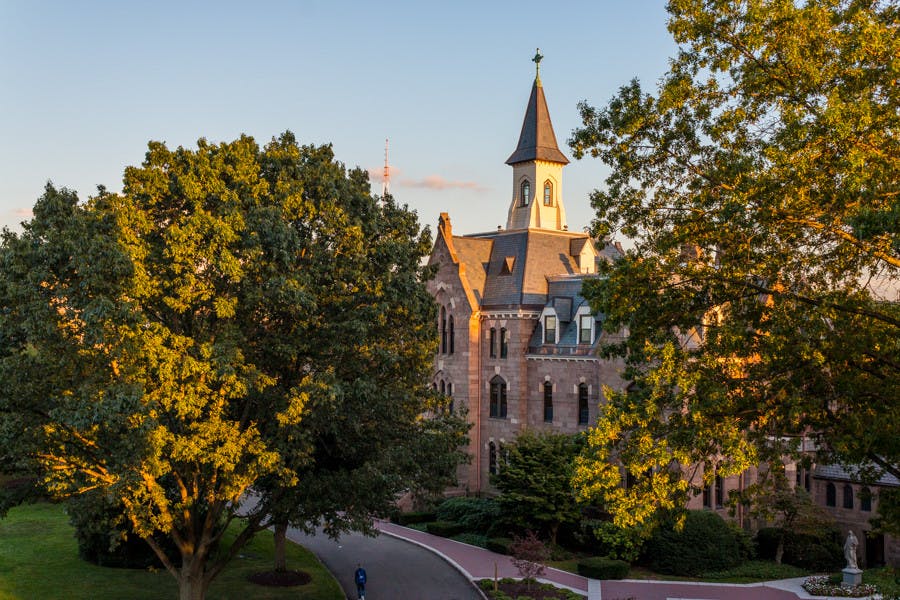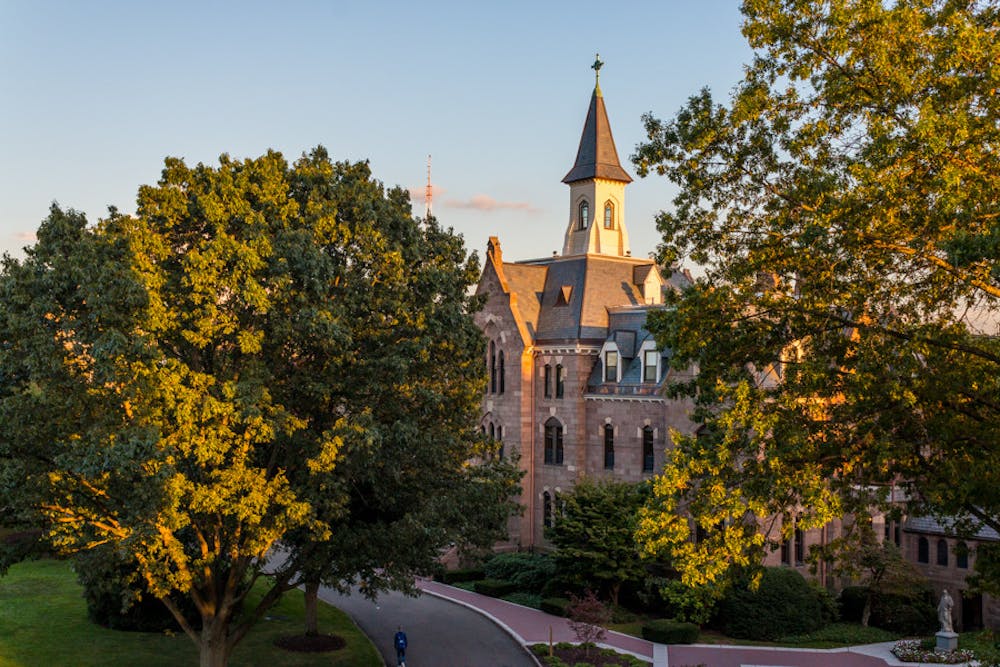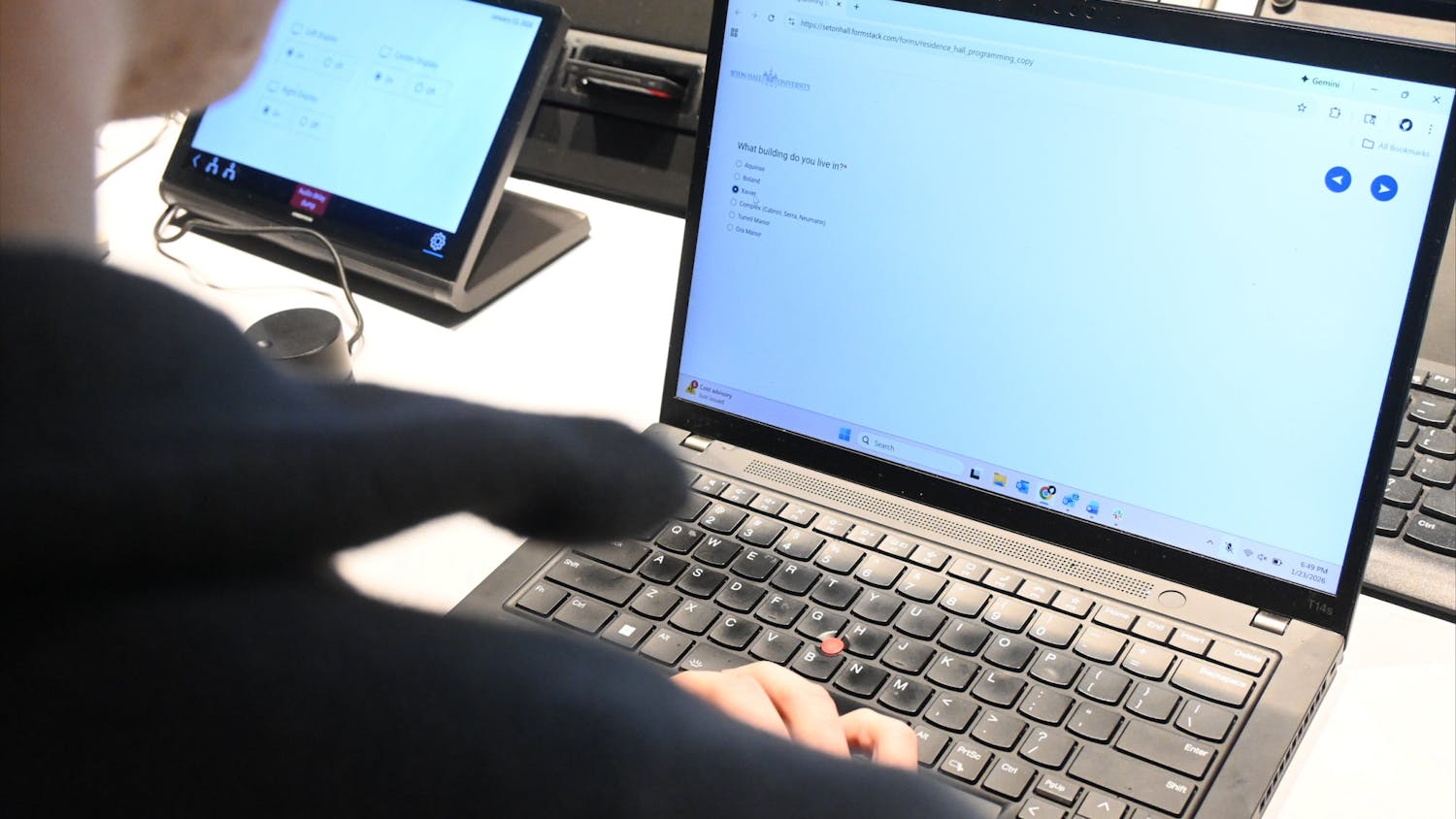Members of the Inclusion Alliance visited freshmen students in their University Life classes for the second consecutive year in a row to facilite discussions on diversity this week.

The Inclusion Alliance members acted as guest speakers to teach the students more about inclusion and diversity at Seton Hall University.
Robin Cunningham, the dean of freshman studies and special academic programs, commented on the discussions.
Cunningham said that they want University Life to be current with the topics of the day, especially with those that are at the top of the mind on campus.
She went on to explain how this idea came about.She said that the original plan was suggested by a student last year, who thought it would be innovative and meaningful to have students facilitate such an important lesson.
The Inclusion Alliance was started last year as a way to give the students an opportunity to be trained and it was especially meaningful last year, according to Cunningham, and still so this year “with the university’s overall efforts to keep diversity and inclusion at the forefront of our work.”
Lauren Mitchell, director of the inclusion alliance and a freshman mentor commented on the importance of the discussions.
Mitchell said that university life is the perfect forum for this conversation because one of the course’s objectives is to meet the university’s mission in “forming students to be servant leaders in a global society.”
Cunningham explained who spoke to the freshman stating that 50 students, from sophomores to seniors, who signed up to become leaders for the inclusion alliance this year.
The students participated in an overnight training session in September and received additional refresher sessions on campus where they learned and practiced facilitation strategies regarding the topics of race, bias, conflict resolution, diversity and inclusion, among others
Mitchell added that the peer leaders in the inclusion alliance represent each college at the University, out-of-state and international students, and a rich diversity of backgrounds and faith traditions.
Mitchell went on to say that by having first-year students have an open conversation about important social dynamics and “more importantly by demonstrating how to do so in a productive and respectful manner, we are developing their capacity to be servant leaders in a global society.”
Mitchell said that this initiative is aimed to engage all freshman in a student-led class on harnessing self-reflection to initiate a meaningful dialogue about race, racism and diversity.
Cunningham shared that she hopes students will take to heart the leadership potential they all have and get involved with the alliance next year.
“We hope that the lesson will spark the importance of mindfulness and acceptance of all students’ stories…what their experiences are and how the college classroom gives us the opportunity to share, debate and consider different points of view,” Cunningham said.
Mitchell also shared what she hopes freshman will get of hearing members of the alliance speak.
“I hope that, by engaging with members of the Inclusion Alliance, first-year students will recognize the unique opportunity they have here at Seton Hall to connect with people from all walks of life,” Mitchell said. “I hope that they are encouraged to be respectfully curious and mindfully inclusive of others.”
Cunningham concluded by sharing the feedback that students and mentors have given.
“This is just our second year of this program. Overall the feedback has been very positive on all fronts,” Cunningham said. “The freshmen appreciate the facilitation styles of a fellow student, the Peer Leaders are grateful for this leadership opportunity, and we are presenting an important topic for our freshmen students to grapple with under the guidance of a fellow student.”
Julius W. Moore, a freshman mentor at the university, shared the feedback that his students provided him with after the session ended.
According to Moore, his students reacted very positively to the class.
He went on to say that, “I believe this 50-minute class opened more exploration into the subject and discussion outside of the classroom. My students walked their paths in life but had an opportunity to venture down someone else’s experience that was foreign to their own — building a greater understanding of racism, prejudice, and discrimination.”
He went on to describe his opinion on having members of the inclusion alliance speak to freshman.
Moore teaches five sections of university life and he feels that the peer leaders from the inclusion alliance did an excellent job facilitating each class. He went on to say that each class is a dynamic group and that the students come from different walks of life who have experienced “racism, prejudice, and discrimination in their own way, if at all.”
He enjoyed the way that the peer leaders who came to each of his classes ensured that it was a safe space for students to feel free to express themselves despite difficulty that may arise during the conversation.
“Silence and student responses challenged the peer leaders on neutrality and their ability to manage the class,” Moore said. “Overall, they did a phenomenal job and conducted themselves as true professionals.”
Moore concluded by sharing his opinion on whether these series of talks should happen again or if other organizations should have the opportunity to speak as well.
According to Moore, the inclusion alliance at Seton Hall must continue and should expand beyond the classroom. “The training, the peer leaders, go through to facilitate this class is invaluable. The Peer Leaders of the Inclusion Alliance represents the best Seton Hall has to offer in the realm of diversity, inclusion, and solidarity.”
Mitchell concluded by saying that several students inquired about joining the inclusion alliance after the lesson and that mentors shared “overwhelmingly positive feedback regarding the professionalism, facilitation skills, and respect with which the Inclusion Alliance led this class.”
Rhania Kamel can be reached at rhania.kamel@student.shu.edu.





